Chemical Etchers for Engraved Name Plates and Metal Signs
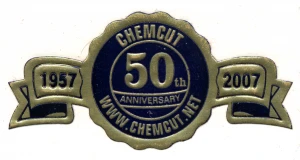
What kind of Signs and Name Plates are made in Chemcut Machines?
Any sign or name plate that is made by etching metal or glass can be produced in a Chemcut etcher.
Engraved name plates are typically made from metal, and using a chemical etcher is a very cost-effective method. We have built etchers for stainless steel, titanium, brass, aluminum name plates, and other metals. If you want a list of metals for we can build a name plate engraving machine for, proceed to our Chemical Milling page.
Etching titanium has become a popular manufacturing process. We specialize in building hydrofluoric acid (HF) etchers, which is required to etch titanium.
In 2020, Chemcut built the largest titanium etcher in the world. It featured 11 hydrofluoric acid etch chambers.
What is a Name Plate?
A name plate is a plate, sign, or plaque that displays the name of an individual, company, or any other entity. Signs and name plates can be made of plastic, wood, metal, or glass. Chemcut builds name plate engraving machines for metal and glass.
How are Name Plates made?
The chemical etching process to make a name plate is similar to chemical milling. A piece of metal with an image on it is placed on a conveyorized etcher, and the conveyor moves the metal through the metal etching machine for a preset amount of time. The metal is then rinsed and stripped, leaving an engraved name plate.
The sign and name plate etching process starts with selecting the type of metal to be used and the proper chemistry for etching that metal.
Next, a photoresist for that metal is selected so photo etching can be completed. The photoresist is laminated onto the metal, exposed to UV light, and chemically developed. For an in-depth description of this process, read more on our Photoresist Equipment page.
If you are etching stainless steel, ferric chloride will be the chemistry used. Name plates are typically just etched part way through the metal, producing either engraved or raised letters. To produce engraved letters, the manufacturer leaves the metal exposed where letters are to be engraved. The etchant will react with the surface, causing the exposed metal to be etched away and leaving letters engraved into the metal.
For producing raised letters, the manufacturer exposes the area around the letters to the etchant. The etchant will react with the exposed surface to etch away the area around the letters, leaving raised letters.
The photoresist is then stripped off using chemistry, rinsed with water, and dried. The metal sign now has the design desired and is ready for the next steps in your process.
Sign etching and engraving follow the same process.
Accessibility Signage
ADA compliant Signs
Architectural Signage
Business Cards
Company Name Plates
Desk Name Plates
Door Name Plates
Metal Plates
Plaque Engraving
Wall Signs
And much more!
XLi Chemical Cleaning System
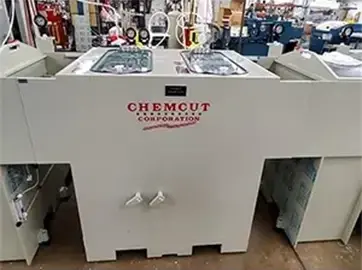
- 20″
- 30″
- 40″
- 50″
- 60″
- Cleaner (Stand Alone)
- Alkaline Clean to Acid Clean
- Custom Size (1 to as many chambers as you want)
- Acid Cleaner
- Alkaline Cleaner
XLi Developing Systems
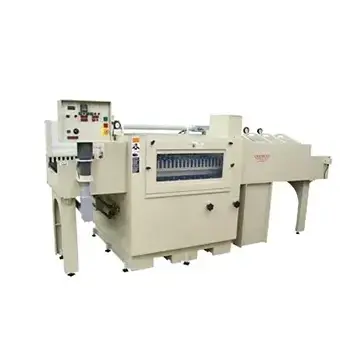
- 20″
- 30″
- 40″
- 50″
- 60″
- Custom Size (1 to as many chambers as you want)
- Developer (Stand Alone)
- DES (Develop – Etch – Strip)
- 1% Potassium Carbonate
- 1% Sodium Carbonate
XLi Etching Systems
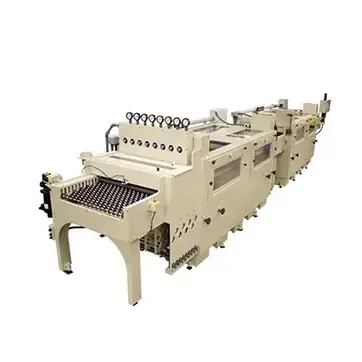
- 20″
- 30″
- 40″
- 50″
- 60″
- Custom Size (1 to as many chambers as you want)
- DES (Develop – Etch – Strip)
- Etcher (Stand Alone)
- SES (Strip – Etch – Strip)
- Alkaline Etchant
- Cupric Chloride Etchant
- Ferric chloride Etchant
- Hydrofluoric Acid (HF)
- Micro etch
- Aluminum
- Copper
- Glass
- Steel
- Titanium
- And more
XLi Stripping Systems
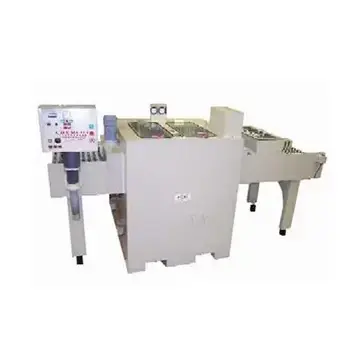
- 20″
- 30″
- 40″
- 50″
- 60″
- Custom Size (1 to as many chambers as you want)
- DES (Develop – Etch – Strip)
- SES (Strip – Etch – Strip)
- Stripper (Stand Alone)
- Metal Resist Stripper
- Proprietary Aqueous or Semi-Aqueous Stripper
- Potassium Hydroxide
- Sodium Hydroxide
121 Brush Cleaner
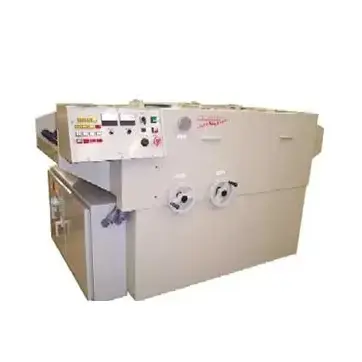
- Wet Brushing
- Oscillating Brushes
- Choice of bristle or compressed brushes
- Brushing
- Cleaner
- Finishing
- Remove Polishing
219 Scrubber
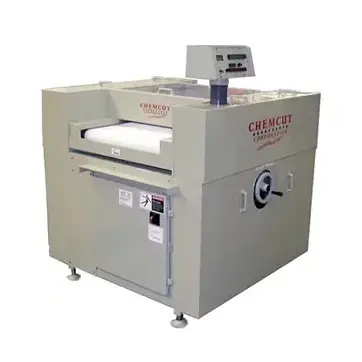
- Single-sided abrasive brush
- Tough reinforced conveyor belt supports small parts
2300 Series Chemical Cleaning System
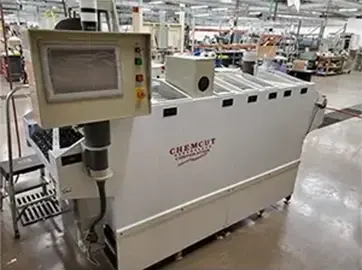
- 15″
- 20″
- 30″
- Cleaner (Stand Alone)
- Alkaline Clean to Acid Clean
- Custom Size (1 to as many chambers as you want)
- Acid Cleaner
- Alkaline Cleaner
2300 Series Etching System
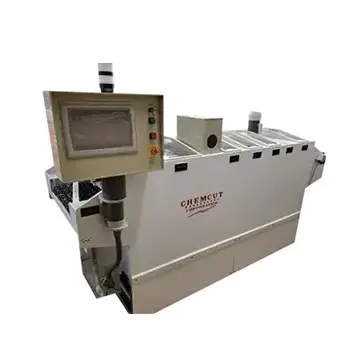
- 15″
- 20″
- 30″
- Custom Size (1 to as many chambers as you want)
- DES (Develop – Etch – Strip)
- Etcher (Stand Alone)
- SES (Strip – Etch – Strip)
- Alkaline Etchant
- Cupric Chloride Etchant
- Ferric chloride Etchant
- Hydrofluoric Acid (HF)
- Micro etch
- Aluminum
- Copper
- Glass
- Steel
- Titanium
- And more
2300 Series Stripping System
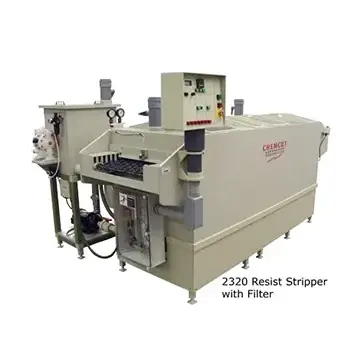
- 15″
- 20″
- 30″
- Custom Size (1 to as many chambers as you want)
- DES (Develop – Etch – Strip)
- SES (Strip – Etch – Strip)
- Stripper (Stand Alone)
- Metal Resist Stripper
- Proprietary Aqueous or Semi-Aqueous Stripper
- Potassium Hydroxide
- Sodium Hydroxide
2300 Series Developing System
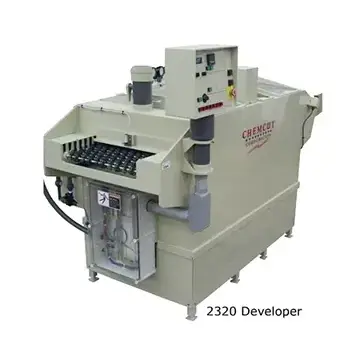
- 15″
- 20″
- 30″
- Custom Size (1 to as many chambers as you want)
- Developer (Stand Alone)
- DES (Develop – Etch – Strip)
- 1% Potassium Carbonate
- 1% Sodium Carbonate
- dry film photoresists
- liquid photoresists
- Aqueous solder mask resist (dry and liquid)
- And many more resists
2300 Series Dryer
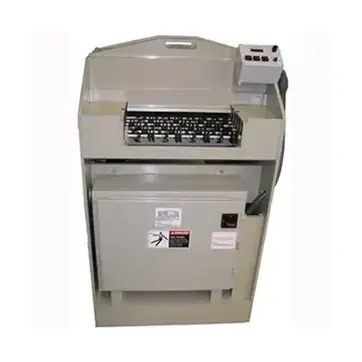
- 15″
- 20″
- 30″
- 40″
- Stand-alone drying system
- Portable unit (move anywhere in the shop) or fix it in place
2800 Drawer Etcher
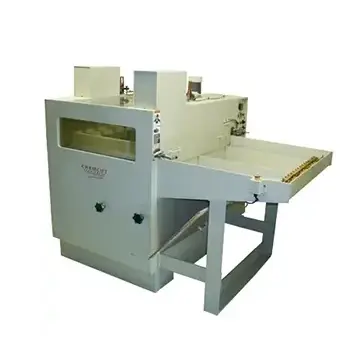
- An adjustable drawer type rack
- Loads parts horizontally up to size 21″ x 21″
- Oscillating spray tubes
- Oscillating rack to maximize etchant movement
604 Deburrer
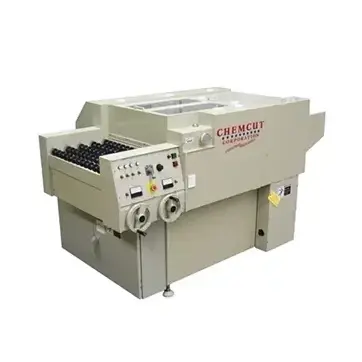
- 2 oscillating brushes
- Built-in Rinse and Dryer
- Post PCB drilling
- Post punching operations
936 Web Filtering System
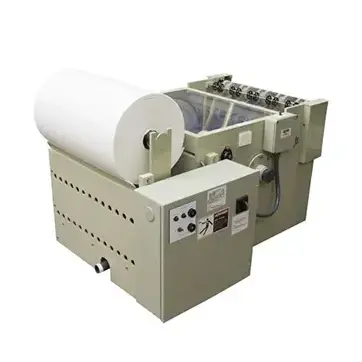
Removes these from rinse water: Metal fines, Brush particles, Oils and other contaminates.
CC8000 Chemical Cleaning System
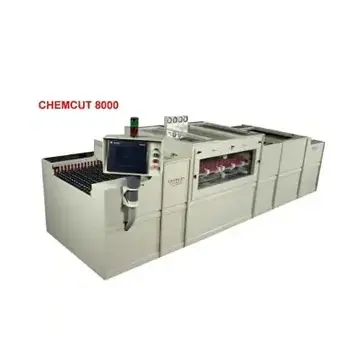
- 20″
- 30″
- 40″
- 50″
- 60″
- Cleaner (Stand Alone)
- Alkaline Clean to Acid Clean
- Custom Size (1 to as many chambers as you want)
- Acid Cleaner
- Alkaline Cleaner
CC8000 Developing Systems
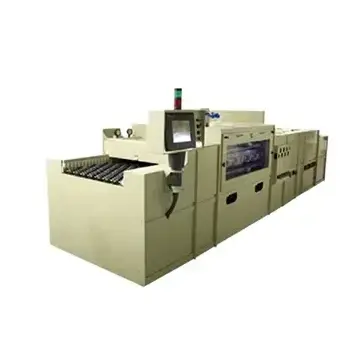
- 20″
- 30″
- 40″
- 50″
- 60″
- Custom Size (1 to as many chambers as you want)
- Developer (Stand Alone)
- DES (Develop – Etch – Strip)
- 1% Potassium Carbonate
- 1% Sodium Carbonate
- dry film photoresists
- liquid photoresists
- Aqueous solder mask resist (dry and liquid)
- And many more resists
CC8000 Etching Systems
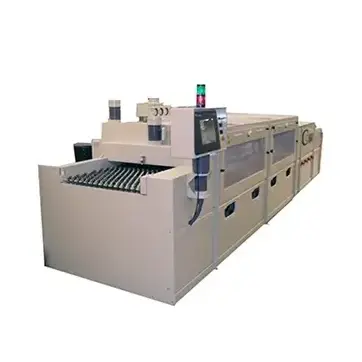
- 20″
- 30″
- 40″
- 50″
- 60″
- Custom Size (1 to as many chambers as you want)
- DES (Develop – Etch – Strip)
- Etcher (Stand Alone)
- SES (Strip – Etch – Strip)
- Alkaline Etchant
- Cupric Chloride Etchant
- Ferric chloride Etchant
- Hydrofluoric Acid (HF)
- Micro etch
- Aluminum
- Copper
- Glass
- Steel
- Titanium
- And more
CC8000 Stripping Systems
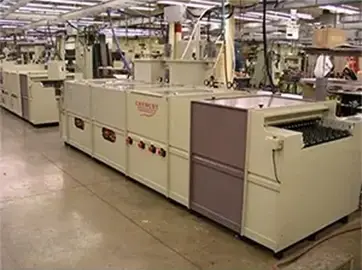
- 20″
- 30″
- 40″
- 50″
- 60″
- Custom Size (1 to as many chambers as you want)
- DES (Develop – Etch – Strip)
- SES (Strip – Etch – Strip)
- Stripper (Stand Alone)
- Sodium Hydroxide
- Potassium Hydroxide
- Proprietary Aqueous or Semi-Aqueous Stripper
- Metal Resist Stripper
Etch Adjust Module (EAM)
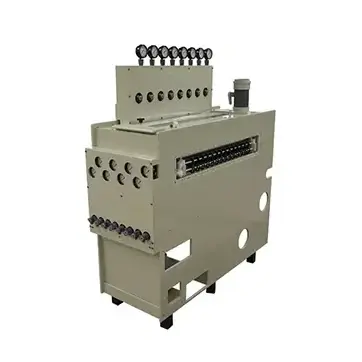
- CC8000 Etching Systems
- XLi Etching Systems
- Plated boards: Correct side to side etch difference when one side is plated more
- Fine-tune very small features
Related Resources
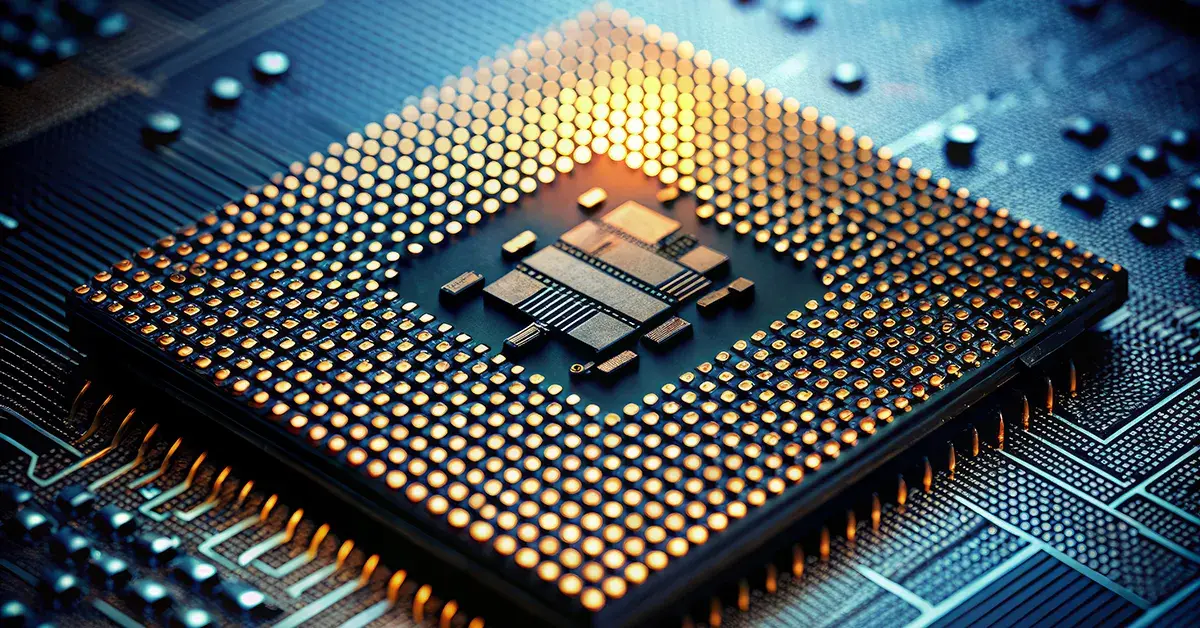
How to Scale Up Production with Chemical Milling & Etching
Chemical milling and etching are powerful techniques widely used in industries requiring precise,...
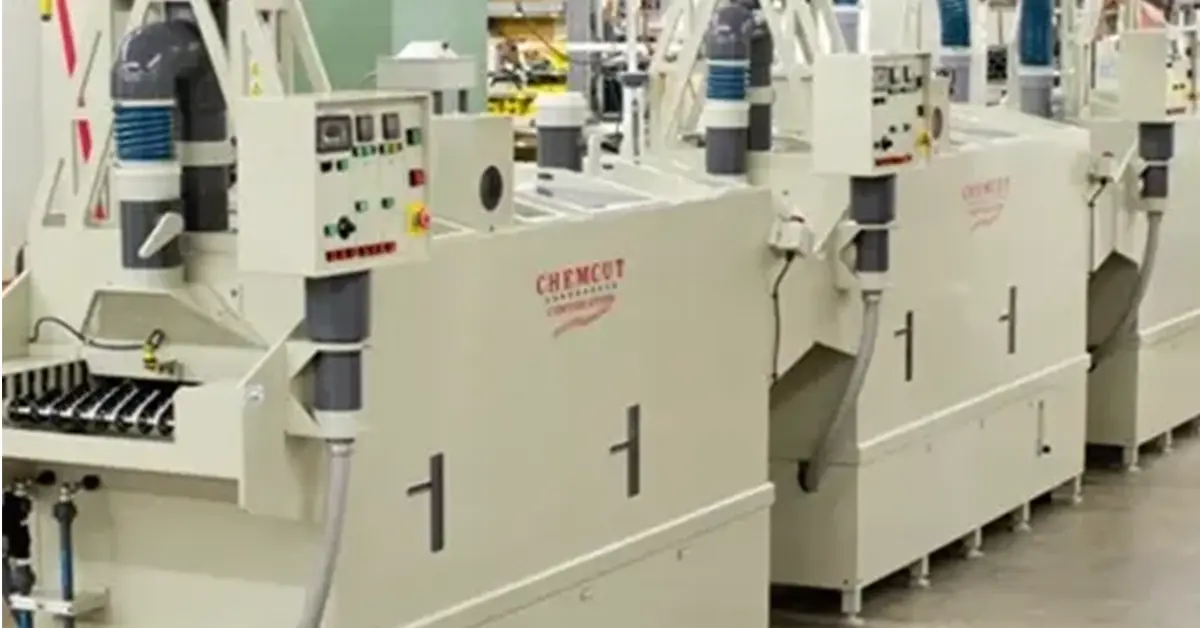
11 Things Needed to Start a Chemical Etching Plant | Chemcut Blog
11 Things You Need to Start a Chemical Etching Plant Chemical etching has been around since 2500...
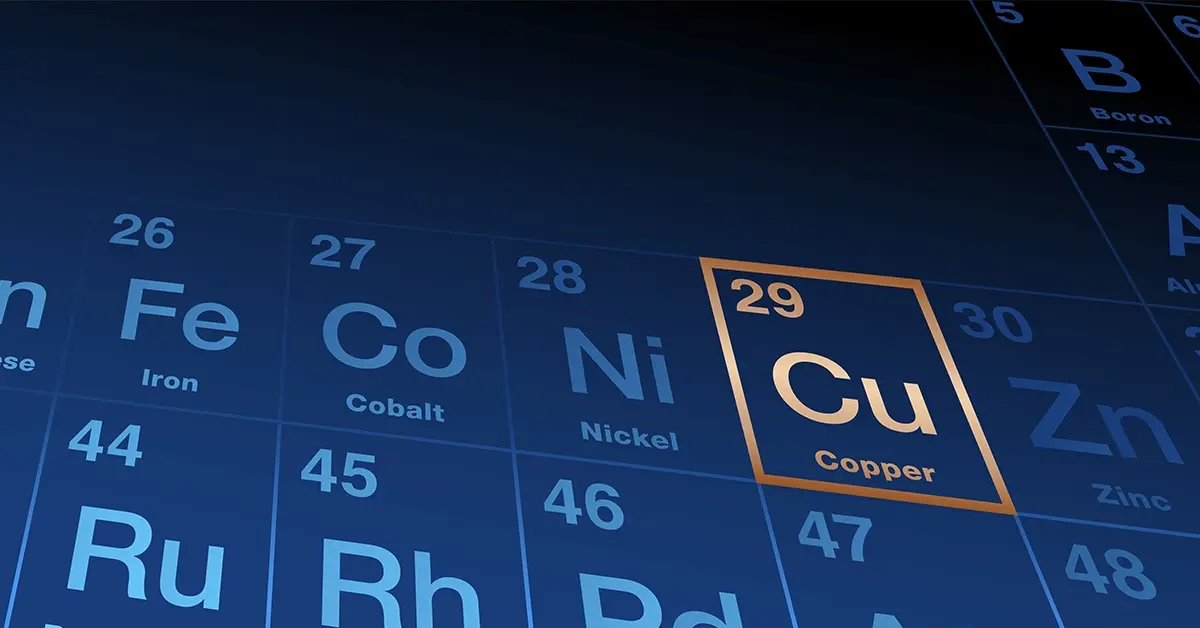
Copper Etchant Options | ChemCut
Copper etching is a vital manufacturing process that tends to be used in the manufacturing of...
High quality products are made with high quality equipment. Stake your reputation on Chemcut.
Already a customer?
Chemcut’s commitment to you goes beyond the sale. We keep your equipment running with the industry’s best post-sales support, which includes our in-house R&D lab and global field service assistance.
We also maintain the industry’s largest and most diverse inventory of high-quality replacement parts to ensure prompt delivery regardless of the type or age of your Chemcut or MEI Division equipment.